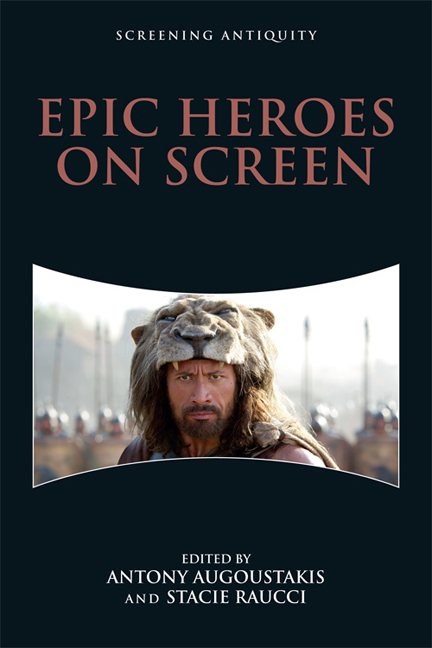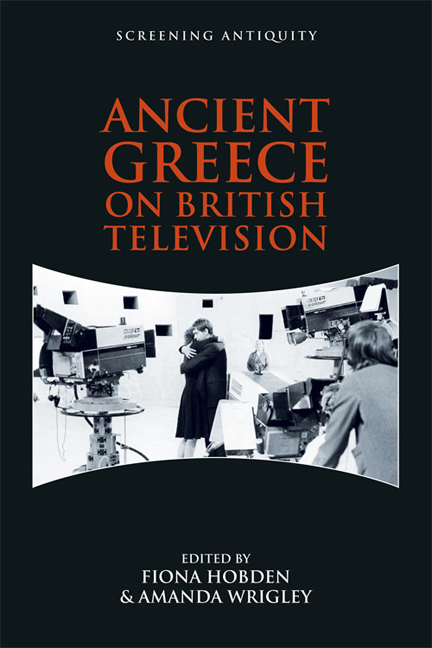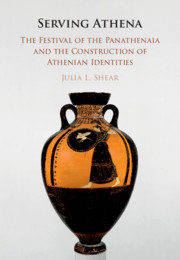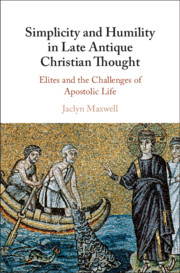Refine search
Actions for selected content:
24021 results in Ancient history
Copyright page
-
- Book:
- The Cult of Castor and Pollux in Ancient Rome
- Published online:
- 08 May 2021
- Print publication:
- 29 April 2021, pp iv-iv
-
- Chapter
- Export citation
4 - Castor and Pollux as Parallels for Imperial Heirs
-
- Book:
- The Cult of Castor and Pollux in Ancient Rome
- Published online:
- 08 May 2021
- Print publication:
- 29 April 2021, pp 145-193
-
- Chapter
- Export citation
Index
-
- Book:
- The Cult of Castor and Pollux in Ancient Rome
- Published online:
- 08 May 2021
- Print publication:
- 29 April 2021, pp 221-224
-
- Chapter
- Export citation
Illustrations
-
- Book:
- The Cult of Castor and Pollux in Ancient Rome
- Published online:
- 08 May 2021
- Print publication:
- 29 April 2021, pp vi-viii
-
- Chapter
- Export citation
Conclusion
-
- Book:
- The Cult of Castor and Pollux in Ancient Rome
- Published online:
- 08 May 2021
- Print publication:
- 29 April 2021, pp 194-197
-
- Chapter
- Export citation
Contents
-
- Book:
- The Cult of Castor and Pollux in Ancient Rome
- Published online:
- 08 May 2021
- Print publication:
- 29 April 2021, pp v-v
-
- Chapter
- Export citation
1 - The Temples of Castor and Pollux
-
- Book:
- The Cult of Castor and Pollux in Ancient Rome
- Published online:
- 08 May 2021
- Print publication:
- 29 April 2021, pp 29-73
-
- Chapter
- Export citation

Epic Heroes on Screen
-
- Published by:
- Edinburgh University Press
- Published online:
- 24 April 2021
- Print publication:
- 15 May 2018

Ancient Greece on British Television
-
- Published by:
- Edinburgh University Press
- Published online:
- 24 April 2021
- Print publication:
- 15 May 2018

Serving Athena
- The Festival of the Panathenaia and the Construction of Athenian Identities
-
- Published online:
- 17 April 2021
- Print publication:
- 11 March 2021

Simplicity and Humility in Late Antique Christian Thought
- Elites and the Challenges of Apostolic Life
-
- Published online:
- 26 March 2021
- Print publication:
- 25 March 2021
Dedication
-
- Book:
- Simplicity and Humility in Late Antique Christian Thought
- Published online:
- 26 March 2021
- Print publication:
- 25 March 2021, pp v-vi
-
- Chapter
- Export citation
Abbreviations
-
- Book:
- Simplicity and Humility in Late Antique Christian Thought
- Published online:
- 26 March 2021
- Print publication:
- 25 March 2021, pp x-xii
-
- Chapter
- Export citation
Index
-
- Book:
- Simplicity and Humility in Late Antique Christian Thought
- Published online:
- 26 March 2021
- Print publication:
- 25 March 2021, pp 190-194
-
- Chapter
- Export citation
Chapter 1 - Roman and Early Christian Attitudes toward Social and Economic Divisions
-
- Book:
- Simplicity and Humility in Late Antique Christian Thought
- Published online:
- 26 March 2021
- Print publication:
- 25 March 2021, pp 12-33
-
- Chapter
- Export citation
Chapter 2 - Christian Attitudes toward Social and Economic Divisions in Late Antiquity
-
- Book:
- Simplicity and Humility in Late Antique Christian Thought
- Published online:
- 26 March 2021
- Print publication:
- 25 March 2021, pp 34-55
-
- Chapter
- Export citation
Introduction
-
- Book:
- Simplicity and Humility in Late Antique Christian Thought
- Published online:
- 26 March 2021
- Print publication:
- 25 March 2021, pp 1-11
-
- Chapter
- Export citation
Chapter 3 - Tentmakers and Fishermen
-
- Book:
- Simplicity and Humility in Late Antique Christian Thought
- Published online:
- 26 March 2021
- Print publication:
- 25 March 2021, pp 56-84
-
- Chapter
- Export citation
Copyright page
-
- Book:
- Simplicity and Humility in Late Antique Christian Thought
- Published online:
- 26 March 2021
- Print publication:
- 25 March 2021, pp iv-iv
-
- Chapter
- Export citation
Acknowledgments
-
- Book:
- Simplicity and Humility in Late Antique Christian Thought
- Published online:
- 26 March 2021
- Print publication:
- 25 March 2021, pp viii-ix
-
- Chapter
- Export citation
